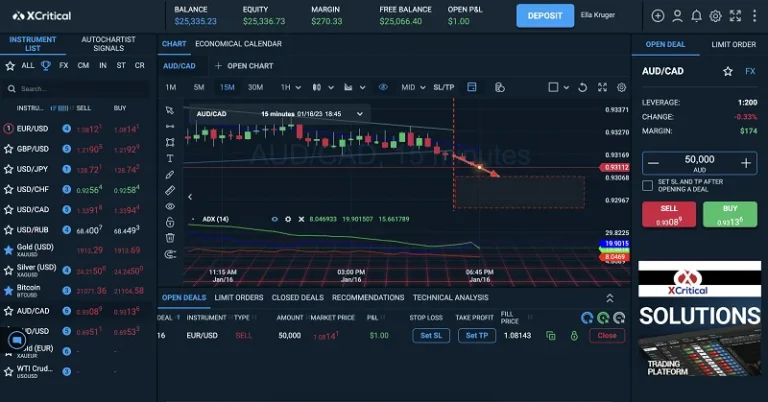The choice of validators could be carried out at random or via a deterministic approach. PoS replaces the requirement for energy-intensive mining and pays validators transaction fees somewhat than extra forex. Consensus is sought while using fewer sources and making the system more scalable. These are blockchain nodes that validate blocks created by the witnesses. They ensure that the witnesses comply with the principles of the consensus mechanism. To summarize, witnesses are liable for validating transactions and securing the underlying community.
This centralization can lead to an absence of true decentralization, which is amongst the core ideas of blockchain technology. If a couple of delegates dominate the network, they could probably manipulate outcomes or act towards the pursuits of the neighborhood. DPoS allows users to vote and elect witnesses and delegates to handle the network. Users with more staked cash have better odds of securing the validation rights. Each person who stakes no less than one coin with the DPoS-powered network can directly vote for the nodes. Some DPoS blockchains permit users to supply their voting power to someone else to vote on their behalf.
Now, to choose these delegates, customers vote on them by pooling their tokens right into a staking pool and linking those to a selected delegate. The delegate with essentially the most tokens may then validate a block, and obtain the corresponding transaction charges as a reward. Next, the delegate distributes the rewards to customers who supported them based mostly benefits of delegated proof-of-stake on every user’s stake.
Proof Of Stake (pos)
Stakeholders engage in a voting ballet, electing delegates who assume the mantle of block manufacturing and network security. The course of is dynamic, with the network’s parameters flexibly adjusting to stakeholder consensus, making certain a consensus mechanism that continues to be responsive to an ever-changing panorama. A revolutionary voting and delegation mechanism powers DPoS, which represents a democratic departure from the traditional proof-of-stake mannequin. Individuals, or stakeholders, wield their affect by casting votes for a select group of delegates liable for upholding the network’s integrity. The Place PoS attempts to solve the faults of PoW, DPoS appears to streamline the block manufacturing course of.

Understanding Consensus Mechanisms: Does It Matter?

Customers stake TRX to vote for 5 SRs at each election, and the top 27 candidates that get chosen are nominated as witnesses. There is a restrict on the variety of delegates chosen for every block, and it differs for every blockchain utilizing https://www.xcritical.com/ this consensus mechanism. This means the delegates of 1 block might not be the delegates of the subsequent.
Delegated Proof of Stake (DPoS) represents a major evolution in blockchain consensus mechanisms. By combining effectivity, democratic governance, and sustainability, DPoS offers a compelling alternative to conventional techniques. However, it’s essential to listen to the challenges that accompany this model, including potential centralization and voter apathy. As the blockchain panorama continues to evolve, DPoS could play a pivotal position in shaping the means ahead for decentralized networks. Sure, DPoS may be combined with different consensus algorithms to create a hybrid consensus mechanism. It provides fast block affirmation instances, excessive scalability, and power effectivity in comparison with consensus algorithms like PoW.
DPoS introduces a rotation system the place witnesses are periodically replaced or shuffled primarily based on the voting outcomes. This rotation prevents centralization of energy, enhances network security, and provides alternatives for a broader set of members to play a task in block manufacturing. Sensible Byzantine Fault Tolerance (PBFT) focuses on ensuring consensus even in the presence of malicious actors. In PBFT-based methods, a predetermined number of nodes must agree on the validity of a transaction before it’s added to the blockchain.
The specters of centralization and potential community attacks loom large, challenging the very ethos of decentralization that blockchain seeks to uphold. Security just isn’t an afterthought however a central tenet in DPoS, with validators working tirelessly to safeguard the integrity of the community. It is of their diligence that the belief of the network’s users is earned, guaranteeing a system that operates with transparency and resilience. Some well-known blockchains that use Delegated Proof of Stake include EOS, Tron, and Bit Shares, every of which has carried out DPoS to enhance scalability and governance within their ecosystems. You mustn’t construe any such data or other materials as authorized, tax, investment, monetary, or other advice.
Furthermore, the decentralized governance side of DPoS presents a possibility for community engagement and empowerment. As extra initiatives adopt this consensus model, it’s likely that we will see innovations in voting methods and stakeholder participation, selling a good Initial exchange offering and clear decision-making process. The way ahead for DPoS in blockchain and crypto appears to be promising, as this consensus mechanism continues to evolve and appeal to consideration from developers and customers alike. Also referred to as ‘witnesses’ or ‘block producers’, only a certain variety of these delegates are permitted; and so they can change, as others could be voted in as an alternative.
Staking typically requires a lockup or bonded period the place you can’t withdraw your crypto for a sure time period. One Other primary risk is a lack of funds because of penalties such as slashing. It’s important to mitigate these dangers by selecting a reputable validator known for its prime quality performance.

PrimeXBT (PTY) LTD acts as an middleman between the investor and the market maker, which is the counterparty to the merchandise bought via PrimeXBT. Decentralization needs to be measured on a relative scale rather than viewing it as a black-and-white idea. DPoS is designed to resolve the critical limitations that hinder the sooner systems like PoW and PoS. In this text, we are going to ponder the completely different parts of the DPoS algorithm and its working mechanism intimately.
- This centralization can lead to an absence of true decentralization, which is doubtless considered one of the core rules of blockchain technology.
- This keeps the network secure while limiting the variety of nodes that should take part in consensus.
- By combining efficiency, democratic governance, and sustainability, DPoS offers a compelling different to traditional systems.
- DPoS enhances security by limiting the variety of validating nodes and rotating delegates via voting.
DPoS was developed by pc scientist Daniel Larimer in 2014, evolving from the original PoS algorithm. While token holders have the power to vote, the precise validation and block manufacturing is carried out by the chosen delegates. In the rapidly evolving world of blockchain expertise, numerous consensus mechanisms have emerged to boost the efficiency and scalability of networks. Delegated Proof of Stake (DPoS) stands out as a novel and progressive method that addresses some limitations of traditional Proof of Stake and Proof of Work systems. This weblog publish aims to supply an in-depth understanding of DPoS, exploring its mechanics, advantages, and potential challenges. By examining how DPoS operates and its implications for decentralized governance, readers will acquire insights into the means ahead for blockchain consensus mechanisms.
